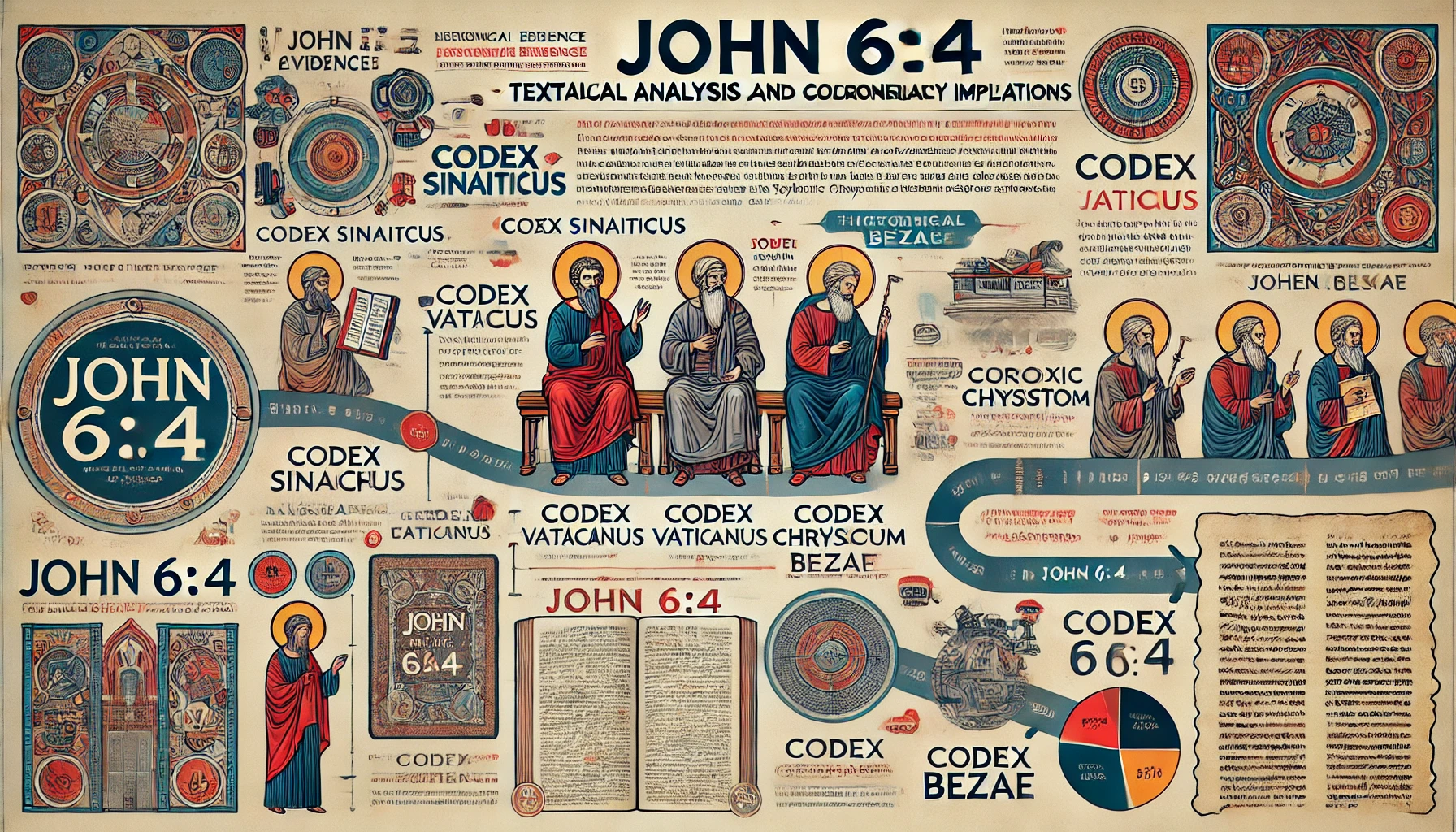The study of Biblical manuscripts is an intricate process that demands attention to historical context, textual evidence, and theological implications. Today, we explore John 6:4, a verse that has sparked significant debate among scholars and theologians. The question at hand is whether John 6:4 was an original part of the Gospel or an addition that disrupts the chronological harmony of Yeshua's ministry.
The Controversy Surrounding John 6:4
The debate over John 6:4 centers around its potential impact on the timeline of Yeshua’s ministry. The verse states:
"Now the Passover, a feast of the Jews, was near."
If this verse is original, it introduces an additional Passover into the timeline of Yeshua’s ministry, creating a three-and-a-half-year duration rather than the one-year framework suggested by the Synoptic Gospels. This discrepancy has led some to investigate whether John 6:4 was a later addition that disrupts the overall narrative consistency.
The Origin of the Investigation
The inquiry began with a conversation where concerns were raised about Michael Rood’s position that John 6:4 does not belong in the Bible. Critics claimed that Rood was arbitrarily removing scripture, prompting a deeper investigation into the manuscript evidence. The primary question was whether there was any textual basis for excluding John 6:4 or if it was a matter of preference.
Analyzing the Evidence
Scholars have long acknowledged the complexities of Biblical textual variants. The methodology used in this study involved examining key manuscripts, consulting textual scholars, and comparing different versions of the Bible. Some of the most critical findings include:
- Codex Sinaiticus (4th century) – Omits John 6:4.
- Codex Vaticanus (4th century) – Does not contain John 6:4.
- Codex Bezae (5th century) – Includes John 6:4, suggesting an early Western addition.
- Codex Alexandrinus (5th century) – Omits John 6:4.
The omission of John 6:4 in some of the earliest and most reliable manuscripts raises the question of whether it was an original part of John’s Gospel or a later scribal addition.
Historical and Theological Implications
John Chrysostom, a 4th-century church father, struggled with the implications of John 6:4. He questioned why Yeshua and His followers would be in Galilee instead of Jerusalem for Passover, concluding that Yeshua was "quietly annulling the Torah." This interpretation, however, contradicts the foundational belief that Yeshua lived a sinless life, fulfilling rather than abolishing the Torah.
Furthermore, Eusebius, another early church historian, noted that Matthew, Mark, and Luke only recorded a one-year ministry, making the additional Passover in John’s account problematic. If John 6:4 is removed, the chronology aligns perfectly with the one-year ministry outlined in the Synoptic Gospels.
Acts 21:25 – A Parallel Textual Issue
A similar textual variant is found in Acts 21:25, where certain manuscripts include the phrase "that they observe no such thing," while others do not. This added phrase suggests that Gentiles were not to observe the Torah, creating a theological discrepancy. Scholars widely agree that these words were added later, reinforcing the importance of careful manuscript comparison.
Conclusion: Weighing the Evidence
The examination of John 6:4 is not about arbitrarily removing scripture but about determining whether it was part of the original inspired text. The weight of manuscript evidence, historical testimonies, and chronological inconsistencies strongly suggest that John 6:4 may have been a later addition rather than an original component of the Gospel.
Ultimately, each individual must examine the evidence and come to their own conclusion. What is clear is that the study of Biblical texts requires diligence, humility, and a commitment to truth. The pursuit of accuracy in scriptural interpretation is not about removing inconvenient verses but about ensuring that what we read is truly reflective of the original inspired word.
#prophecy #theElect #endureToEnd #theElect #messiah2030 #messiah2033 #thegreattribulation
